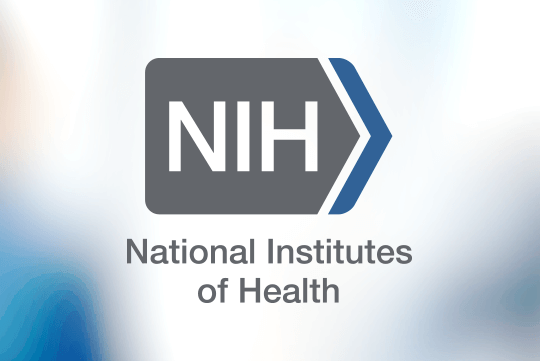Behavioral Research to Improve Medication-Based Treatment
Overview
The Research Need
Medication-based treatment is an established and effective intervention for people with opioid use disorder (OUD). Medications for people with OUD include methadone, buprenorphine/naloxone, buprenorphine, and naltrexone. However, the people who would benefit from these medications often do not receive them or stay on them only a short time, which limits their chances for long-term recovery.
About the Program
The goal of the Behavioral Research to Improve Medication-Based Treatment (BRIM) program is to support research that assesses whether behavioral interventions can improve outcomes of medication-based treatment.
Specifically, the BRIM program seeks to test the effectiveness of combining medications with a wide range of evidence-based behavioral interventions in diverse groups of patients, including veterans, young adults, low-income individuals, and Latina and Native American women. The behavioral interventions include yoga and mindfulness, cognitive behavioral therapy, multidisciplinary rehabilitation, and mobile health technology.
Researchers hope to determine whether using these interventions in combination with medication improves adherence to medication, improves treatment outcomes, and reduces relapse in individuals seeking treatment for OUD.
Open Funding Opportunities
There are no Open Funding Opportunities at this time.
Past Events
- 3rd Annual NIH HEAL Initiative Investigator Meeting Presentation: “Behavioral Economics-Based Stigma Reduction Intervention for Low Income, African American Individuals With Opioid Use Disorder” Dr. Karen Derefinko, University of Tennessee
- American Academy of Addiction Psychiatry Mini Symposium: “Mindfulness and Opioid Use Disorder: Primary Outcomes of Five RCTs with Effects on Substance Use, Craving, Pain, Mental Health, and Potential Mechanisms” Chairperson: Zev Schuman-Olivier, MD
Research Examples
Some of the research projects will be carried out in the context of treatment services that the Substance Abuse and Mental Health Services Administration provides for OUD, layering additional research into state efforts to expand access to evidence-based treatment and recovery support services.
Ongoing research includes:
- Refining and adapting a successful telephone-based psychosocial pain management intervention in veterans with OUD and then evaluating its effectiveness in combination with medication
- Testing mindful awareness in body-oriented therapy as an adjunct to medication in three clinical settings
- Employing peer recovery coaches to support retention in medication-based treatment for low-income, minority individuals with OUD who live in urban settings
- Adapting a cognitive behavioral therapy-based text message system to assist patients with OUD with medication adherence and treatment retention
- Developing, testing, and comparing two behavioral economics interventions to promote adherence in patients initiating medication-based treatment
- Evaluating the effects of assisted exercise and cognitive behavioral therapy as adjunctive treatments to medication in adults with OUD and chronic pain who are enrolled in residential treatment programs
- Assessing efficacy of Mindfulness Oriented Recovery Enhancement (MORE), which simultaneously addresses chronic pain and opioid use disorder, in decreasing opioid relapse in individuals with co-occurring chronic pain and OUD
- Refining and testing an intervention to address barriers to treatment engagement in vulnerable, young adults with OUD by messaging and collaborative planning with families
- Evaluating the efficacy of computer-based training for cognitive behavioral therapy that emphasizes teaching cognitive and behavioral coping skills to increase retention in medication-based treatment for OUD
- Establishing feasibility and testing efficacy of a peer-driven mentoring program to increase medicated-based treatment adherence for individuals being treated with medication for opioid use disorder
- Testing whether an online peer support community intervention can increase medication initiative and sustainment among participants with OUD who are recruited online
- Assessing a mobile app that delivers interactive therapy lessons to teach participants cognitive-behavioral coping skills to resist drug use and to address factors such as craving, depression, and other mood problems in order to prevent relapse
- Adapt, refine, and compare the effectiveness of gradually increased the dose a mindfulness-based intervention increase treatment retention and to reduce the impact of stress, anxiety, depression, and chronic pain in individuals engaged in MAT
- Brandeis University – Massachusetts
- Cambridge Health Alliance – Massachusetts
- Case Western Reserve University – Ohio
- Dartmouth College – New Hampshire
- Maryland Treatment Centers – Maryland
- Penn State Health Hershey Medical Center – Pennsylvania
- Robert Wood Johnson Medical School – New Jersey
- University of Alabama – Alabama
- University of California, Irvine – California
- University of California, Los Angeles – California
- University of Colorado, Denver – Colorado
- University of Maryland, College Park – Maryland
- University of Michigan – Michigan
- University of Tennessee Health Science Center – Tennessee
- University of Washington – Washington
Contact
Peter Murray, Ph.D.
NCCIH
Participating NIH Institutes, Centers, and Offices
NIH announces awards for behavioral research on OUD prevention and treatment
Six research awards totaling $9.4 million over three years will study the impact of behavioral interventions for primary or secondary prevention of opioid use disorder (OUD), or as a complement to medication-assisted treatment (MAT) of OUD.
View Other Research Programs in This Focus Area
- The Continuum of Care in Hospitalized Patients with Opioid Use Disorder and Infectious Complications of Drug Use (CHOICE)
- Enhancing the National Drug Abuse Treatment Clinical Trials Network to Address Opioids
- Harm Reduction Approaches to Reduce Overdose Death
- HEALing Communities Study
- Improving Delivery of Healthcare Services for Polysubstance Use
- Justice Community Opioid Innovation Network (JCOIN)
- Recovery Research Networks
 U.S. Department of Health & Human Services
U.S. Department of Health & Human Services





